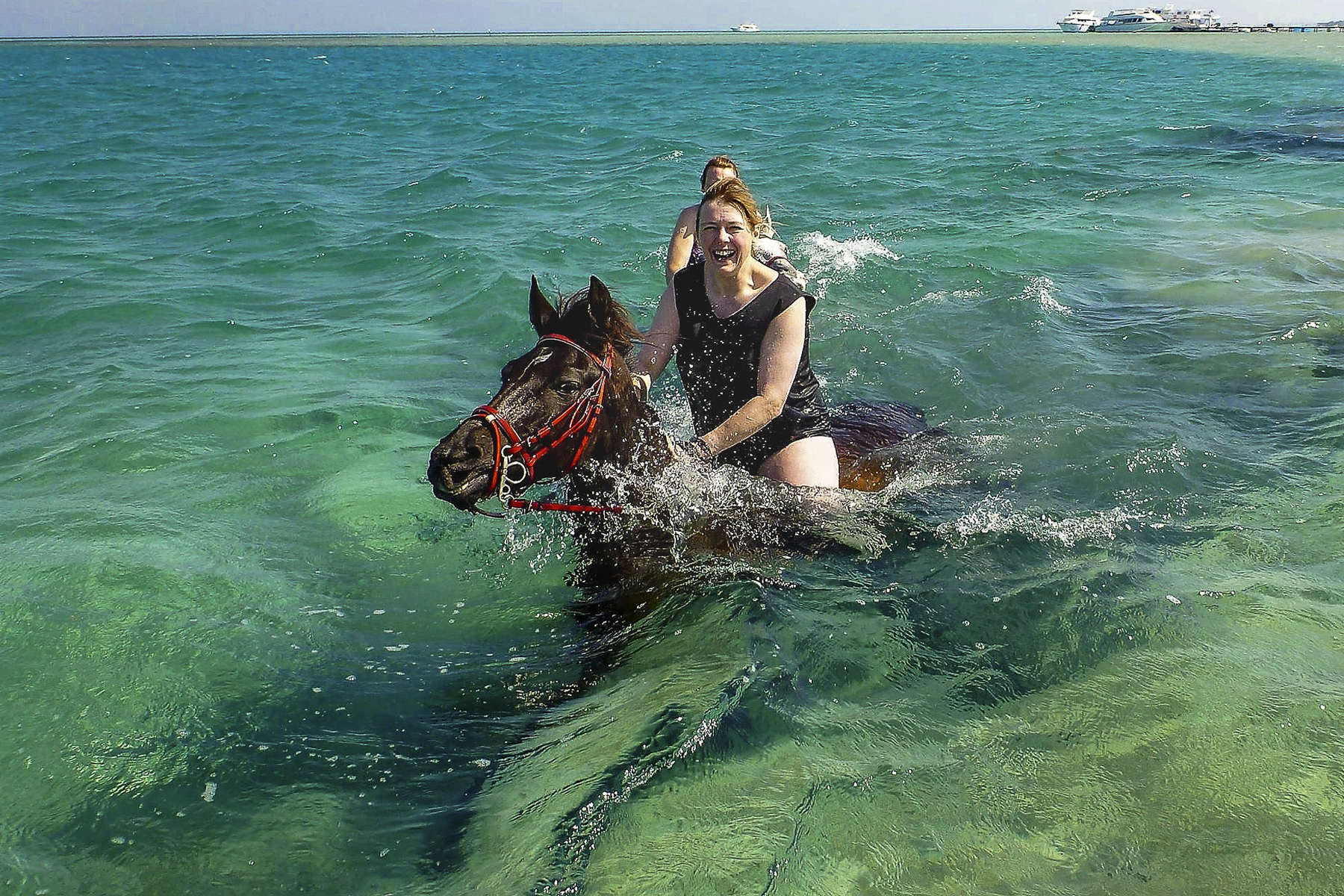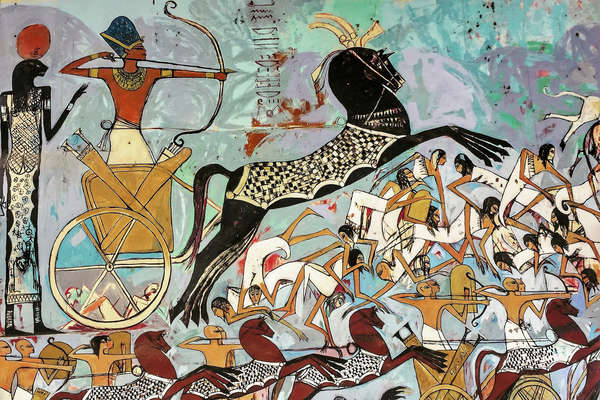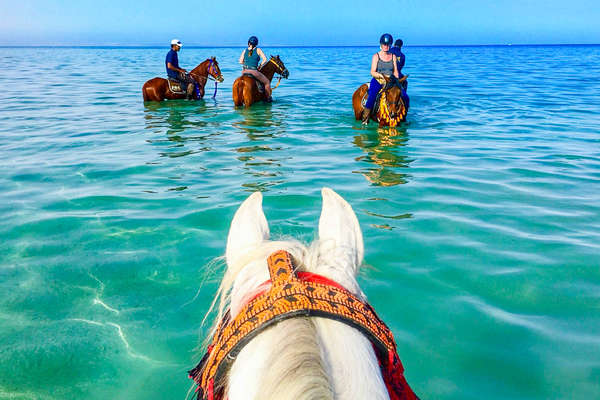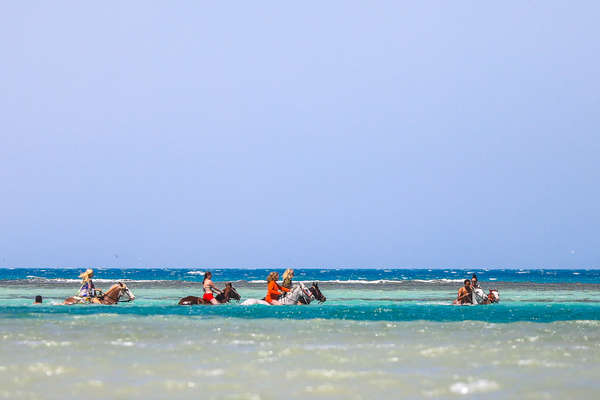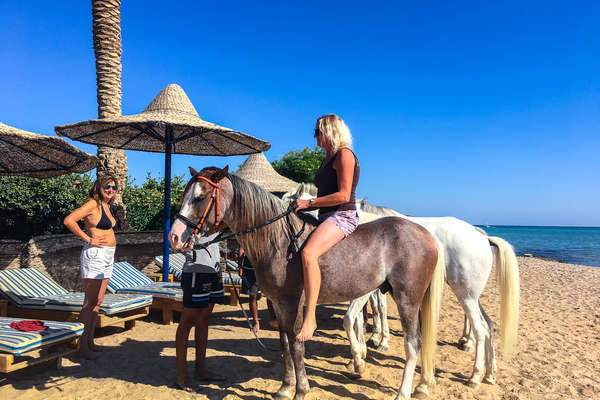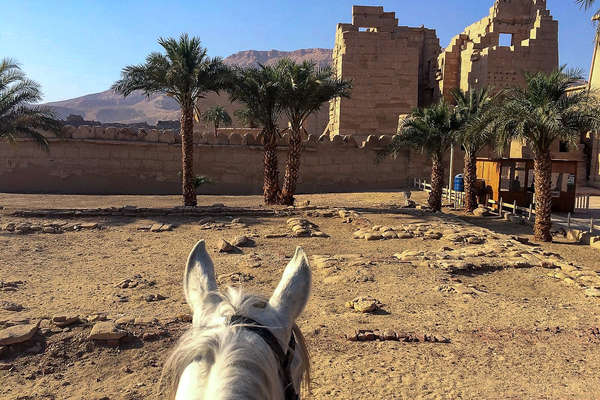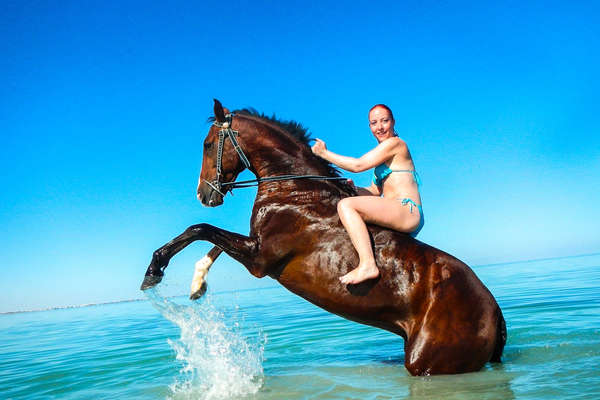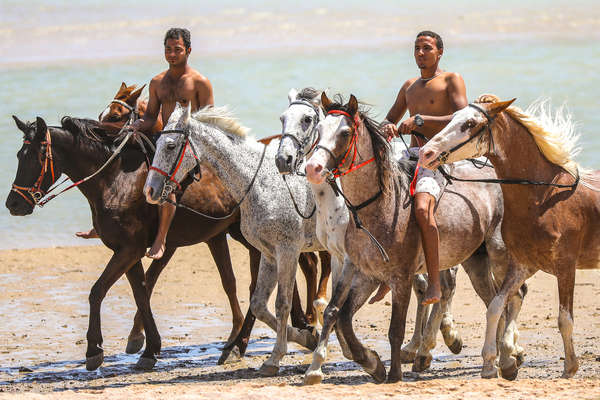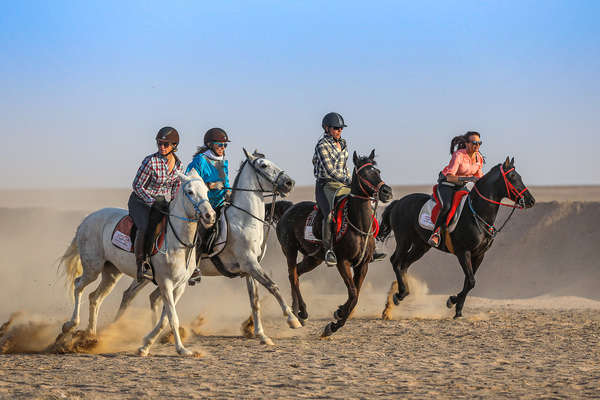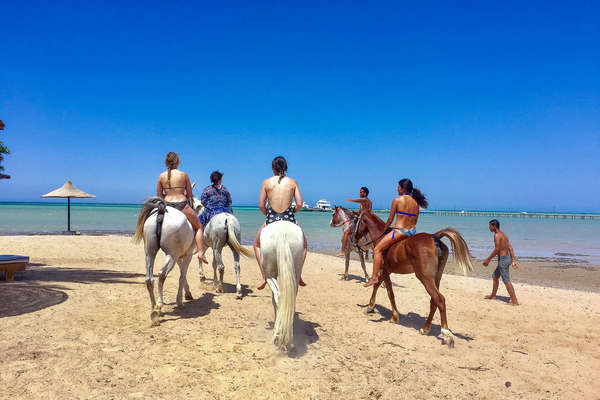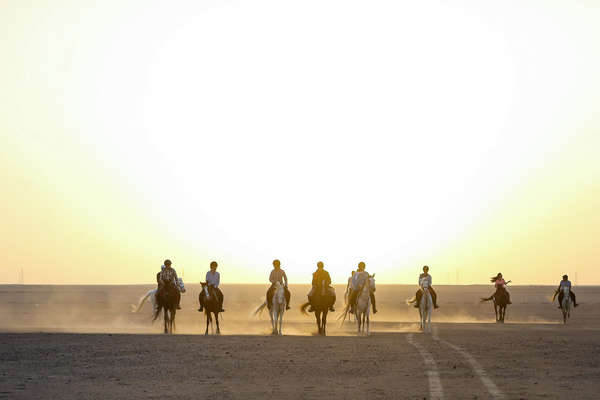Comfort
Nights in a comfortable and hospitable guesthouse in Luxor. In Hurghada, you stay in a 3* hotel with wifi, TV and pool (an upgrade to a 5* resort is available upon request).
Meals
Breakfast: Pancakes, juice, bread, cheese and eggs, tea and coffee.
Lunch: salads, falafels, rice, aubergine, grilled chicken.
Dinner: hot meals (tajines with chicken, meat or fish), rice, salads, mussaka
Water is provided on the ride. Soft drinks & alcohol are payable locally.
Climate
Expect hot temperatures, generally from averages of 18 – 23C in January to 33 – 37C in August, but it is not unheard of for it to be several degrees higher than this during the summer months. Rainfall is rare and sunshine is pretty much guaranteed all year round.
Despite the hot overall temperatures, you will find that it becomes much cooler at night time compared to in the day, especially when you are travelling in more remote areas or through the mountain regions. For this reason we do recommend that you take a few warmer items to keep you cosy at night time.
Tips
Tipping in Egypt is a way of life. It is considered a norm to leave small tips in services you have received, such as restaurants, hotels, drivers, tour guides, etc. A tip envelope of $150 (or the equivalent amount in euros or GBP) will be given to your guide on day 1 and distributed during the week to cover all of the tips mentioned above. This way you don't have to worry about currency exchange and wondering if you should have tipped or not.
Packing list
Head
- A riding helmet is strongly recommended. We recommend you take your own to ensure the right fit.
- Sun hat when not riding
- Sunglasses-with a cord attached so they don't fly away when galloping.
- Buff or bandana for protecting your neck and face from the sun and dust.
Upper body
- Thermals (long or short sleeved)
- Long sleeved shirts to provide protection from the sun.
- T-shirts
- Lightweight fleece or jumper.
- Light waterproof jacket- although it doesn't rain much Egypt, it is better to be prepared.
Legs
- Lightweight riding trousers or jodhpurs. We recommend riding in them at home to ensure they won't rub during your holiday.
- Casual clothes for the non-riding days (jeans or walking trousers)
Hands and Feet
- Comfortable riding boots. We recommend short boots with half chaps but you may take long chaps or long boots.
- Lightweight shoes or trainers for the non-riding days.
- Several pairs of socks
- Gloves - your hands are particularly exposed to the sun, wind or rain whilst riding
Nightwear
- Pyjamas
Other useful items:
- Swimsuit and a small travel towel
- Camera and high capacity memory card. Spare battery
- Bumbag for carrying your camera and small items whilst riding
- Water bottle (2 litres or 2 x 1 litre)
- Ear plugs (for light sleepers)
- Swiss army knife or equivalent (in your Check-in Luggage!!!!)
Medical kit
- Sunscreen and lip balm - should be high factor
- Insect repellent - a must in Egypt, please take a high quality spray
- Any medication you regularly take
- Blister plasters in case of any rubs
- Antiseptic cream, plasters, aspirin, anti-histamine, insect-bite salve etc...
- Spare prescription glasses/contact lenses
- Eye drops
- Imodium or similar anti-diarrhoea medication
- Re-hydration sachets
- Antiseptic wipes
- Hand wash gel
Our Recommendations
- Backpacks cannot be worn whilst riding. We recommend a small bumbag or a coat with pockets so that you can carry small items with you during the day (passport, camera, sunscreen, lip balm etc)
- Any liquids in your hold luggage, such as shampoo, moisturizer, over 100ml should be decanted into small, clear, plastic ziplock bag. We recommend biodegradable washing products where possible.
- In your hand luggage take any valuables, such as your camera, ipod, ipad etc.
- Travelling in your riding boots and carrying your hat and some riding clothes is highly recommended - then if your luggage goes astray you are still able to ride!
- We recommend taking a copy of your passport and insurance documents with you in case you lose your originals

